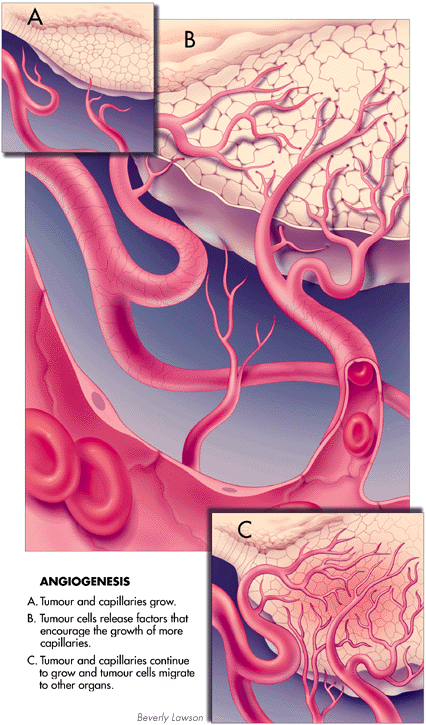Rhonda Witte, BSc
Cancer. The word alone is enough to send fear into the hearts of people. It is safe to assume that everyone knows of someone who has been touched by cancer; they know of someone who is living with or has died of the disease. There are also people who have triumphed over the disease--they have fought cancer and won, they are survivors. Over the years, there have been numerous advances in cancer research. A hot topic in cancer research, in recent years, has focused around a process called angiogenesis. Specifically, researchers are trying to understand angiogenesis and use this knowledge to prevent the growth and spread of cancer.

Angiogenesis, also called neovascularization, is the growth of new blood vessels. Normally, the endothelial cells comprising the capillary walls do not divide. However, during pregnancy, menstruation, and wound repair, endothelial cells are stimulated to grow and divide, increasing the number of blood vessels.1-3 During angiogenesis, endothelial cells must break through the basal lamina around the capillary wall. They do this by releasing proteases, thereby degrading the extracellular matrix. Endothelial cells then migrate toward the stimulatory signal, proliferating and aligning to form new capillaries.4 When properly regulated, angiogenesis stops after a short period of time.

